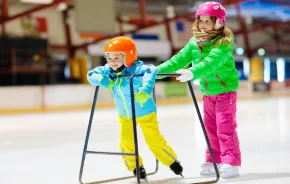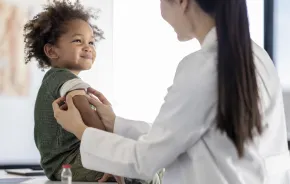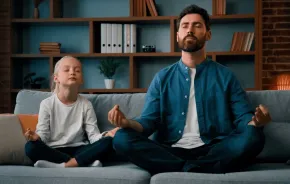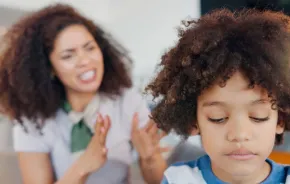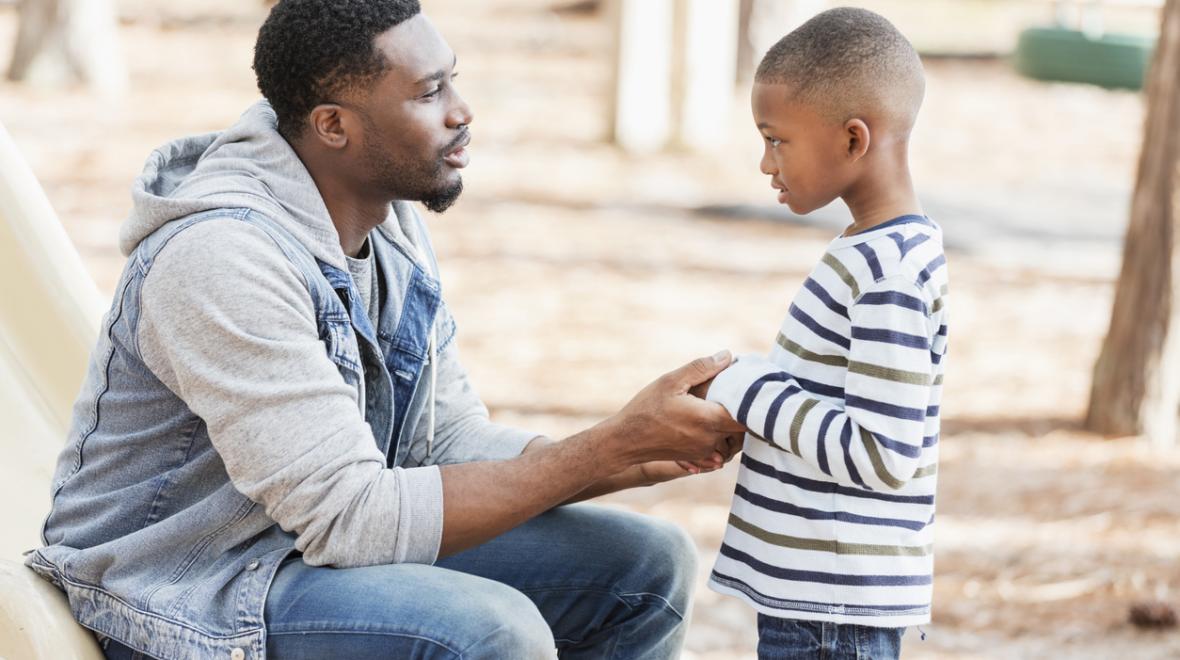
As adults responsible for our children’s safety, parents and teachers of preschool-age kids need to know and practice what we would do in case of an emergency. Knowing how to respond to fire drills, earthquake drills, tornado drills, and, sadly, lockdown drills is an essential part of planning how to keep children safe.
How to talk to young kids about drills
Here's my general approach to talking to young children about scary topics:
- talk about how likely something is to happen
- talk about how we would know it was happening
- teach children what they themselves can do to make it better, and
- explain what the adults will do to make it better
I use this approach when doing fire drills and earthquake drills. A key thing to remember when talking about the possible dangers of these emergencies is to keep it gentle. The goal is to prepare not scare. For example, I want them prepared by knowing that in the event of an earthquake, they need to drop down to their hands and knees because otherwise they might get knocked over, and I want them to know to cover their heads and necks in case things are falling. That is information that will help to keep them safe. I do not tell them that buildings can fall down and people can die. That’s really scary and doesn’t build their ability to take safe actions.
So, that’s information I share if I know the drill is coming. However, at some facilities, they do drills without warning the staff. (The idea is that the drill is more realistic if we’re not all prepped and ready for a drill.) If I’m lucky, I have already done a pre-planned drill with this group of children so we have had a chance to talk about it before. Once I was surprised by an unexpected drill with a group of children on their second day of class. These kids were still just getting to know the classroom and their teachers.
In that case, we just execute all the steps of our drill and then move on. In a class with three- and four-year-olds, I would typically just resume the day’s activities. If they seemed unfazed by it, I wouldn’t talk it through with the whole class, but if individual kids had questions, I would answer them. With older children, I might sit them down and explain more.
If you are a parent who knows that your child did a drill that day, just be aware of it. Some children will never go back and ask “why did we do that thing?” If they don’t ask and don’t seem to have any concerns about it, I don’t worry about it. If they ask questions or seem worried about something, then talk it through.
How to handle questions after a drill
If they have questions or concerns about a possible emergency, such as a fire, then I explain more details, in a realistic but non-scary way. If they have questions or concerns about why we do drills, I explain that grown-ups are responsible for keeping kids safe if an emergency happens. And the whole trick with an emergency is that we don’t know when it will happen, and we don’t know exactly what will happen.
I explain that we have to have some plans we’ve practiced in advance, just in case. Our fire drills help us practice getting out of the building quickly. Our earthquake drills help us practice staying still and staying where we are. Lockdown drills help us practice what to do if something dangerous happens outside and how to gather together inside and keep an eye on each other. Drills are all about practicing — listening to the grown-ups and doing what they ask you to do quickly. And we’ll probably never need to use those emergency skills, but if we do, we have all practiced them and will know how they work.
Preparing for lockdown drills
My approach to lockdown drills is a little different than it is for natural disaster situations. I do not explain why we would do a lockdown. I just say “if it seems like something dangerous may be happening outside the classroom, sometimes it is safest to stay in the classroom.” I don’t talk about bad guys and guns and bullets and so on. I do not want the children in my care to be fearful that people are dangerous and that a shooting is imminent or inevitable. I want them to feel safe in their world.
I do acknowledge that I have some privilege here — I teach in a quiet suburb of a liberal city in a state with tighter gun control laws than many other states. Your environment and needs may differ.
Now, I might not have talked about bad guys and guns, but sometimes one of the children will. Then I can address that yes, sometimes people do bad things that harm others, including using guns. But I can go back to my message of: how likely is it to happen here — not likely. What do we do to protect ourselves? Exactly what we’re doing.
What adults can do in advance of lockdown drills
I totally understand that you, as a parent or teacher, may have a lot of anxiety of your own about school shootings, and a lot of fear — “what if it happened at my child’s school.” Running a lockdown drill as a teacher, or knowing as a parent that your child participated in a lockdown drill, may bring that all up for you.
I would encourage you to do some processing of your own concerns, reaching out to other parents, teachers or therapists for support as needed so that you can get to a place where you can be calm when talking to your child about these things (or at least put on a good act of being calm). During our unexpected lockdown drill, I was grateful that I had practiced remaining calm in these sorts of situations. I was able to focus on getting through the mechanics of a drill without going down my personal rabbit hole of “what ifs.”
Here are some articles you may find helpful:
- How Parents Can Cope With Anxiety After School Shootings
- School Shootings: How Parents Can Cope With Their Own Fears
- How to Cope With The Latest School Shooting if You’re a Parent
- Talking to Kids about School Lockdown Drills
Editor’s Note: This article was originally published by Good Days With Kids and republished with permission.








